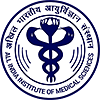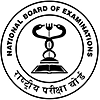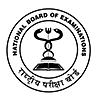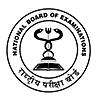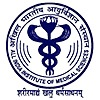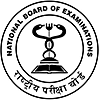MS Neurosurgery Syllabus and Subjects

The syllabus of MS Neurosurgery is fairly broad and includes various topics such as Neuroanatomy, Neurophysiology, Neuropathology, etc. MS Neurosurgery course is a three - five-year post-graduate program that covers the core area of expertise in medical science topics related to Neurology and Neurosurgery. MS Neurosurgery job scope is extensive as it provides various job opportunities to students with a skilled and knowledgeable background.
Table of Contents
- Semester Wise MS Neurosurgery Syllabus
- MS Neurosurgery Subjects
- MS Neurosurgery Course Structure
- MS Neurosurgery Teaching Methodology and Techniques
- MS Neurosurgery Projects
- MS Neurosurgery Books
Semester Wise MS Neurosurgery Syllabus
The MS Neurosurgery syllabus is intended to educate students about medical science advancements in neuroscience, brain and spine research, and surgical training. Therefore, they prioritize practical experience and skills. The MS Neurosurgery course syllabus is intended to provide students with all the information they require to meet the demands of the industry. The MS Neurosurgery subject list syllabus is divided into semesters as follows:
MS Neurosurgery First Year Syllabus
The table below contains the list of MS Neurosurgery subjects in the first year:
|
Semester I |
Semester II |
|
Basics |
Neurosurgical Clinical |
|
Neuroanatomy |
Practice Management, Legal and Socioeconomic Issues |
|
Neuropharmacology |
Neurotrauma and Neurosurgical Critical Care |
|
General Critical Care |
Surgery of the Peripheral Nervous System |
|
Neurosurgery |
Spinal Surgery |
MS Neurosurgery Second Year Syllabus
The table below contains the list of MS Neurosurgery subjects in the second year:
|
Semester II |
Semester IV |
|
Neurophysiology |
Infection |
|
Neuropathology |
Cerebrovascular Surgery |
|
General Clinical |
Pain Management |
|
Neuroradiology |
Pediatric Neurosurgery |
|
Fluid, Electrolytes and Nutrition |
Stereotactic and Functional Neurosurgery |
MS Neurosurgery Subjects
The MS Neurosurgery program is a two-year academic course focusing on the student's chosen specialty and how to use medical surgeries to treat problems and defects, identify other diseases, and suggest diagnoses. MS Neurosurgery covers the following topics:
- Neuroanatomy
- Neuropharmacology
- Neuroradiology
- Practice Management, Legal and Socioeconomic Issues
- Cerebrovascular Surgery
- Pediatric Neurosurgery
- Spinal Surgery
MS Neurosurgery Course Structure
The course structure primarily focuses on getting students acquainted with advanced medical terminology and training them in surgery fundamentals. In addition, internships and workshops are held each semester to prepare students for careers in the healthcare industry. The MS Neurosurgery course covers the following topics:
- IV Semesters
- Specialisation Subjects
- Projects and Dissertation
- Practical Sessions
- Internships And Workshops
- Conferences
MS Neurosurgery Teaching Methodology and Techniques
The subjects and syllabus for the MS Neurosurgery course primarily include specialization subjects. The course's theoretical component focuses on neuroscience and brain and spine surgeries. Internships are heavily promoted throughout the course to assist students in understanding surgeries, medical procedures, and patient care management. Listed below are some of the teaching methodologies:
- Lectures
- Case Studies
- Paper Presentation on Conferences
- Practical Sessions
- Real time Surgery Projects
- Internships
MS Neurosurgery Projects
The MS Neurosurgery program is predominantly project-based. Candidates for this course must be hands-on and ready to face the challenges of working in the healthcare industry. They are taught from the onset to concentrate on the practical aspects of the course. This practice helps in preparing them for the industry's demands. The following are some of the MS Neurosurgery Project topics:
- Stem Cell and Neuroregeneration Research
- Neuro-infectious Disease Research
- Sleep Research
- Brain Tumour Study and Surgery
- Behavioural neuroscience
- Cerebrovascular and skull base neurosurgery
MS Neurosurgery Books
When pursuing MS Neurosurgery, books can be an excellent investment for students, as they can assist them in learning about their specialization in great detail. The reference books can be rented from libraries, downloaded online, or purchased by students. The following are some of the most popular MS Neurosurgery reference books that students can purchase:
|
Name of Book |
Author |
|
Youmans Neurological Surgery |
Youmans and Winn |
|
Schmidek and Sweet: Operative Neurosurgical Techniques |
Alfredo Quiñones-Hinojosa |
|
Cranial Anatomy and Surgical Approaches |
Albert Loren Rhoton Jr. |
|
Seven Aneurysms: Tenets and Techniques for Clipping |
MD Michael T Lawton |
